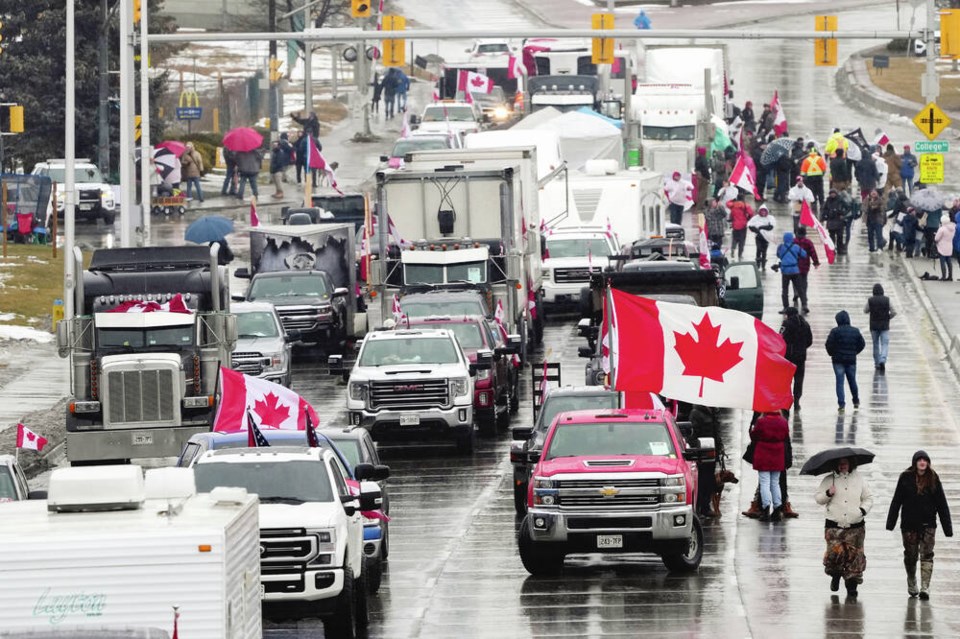Noisy and at times obnoxious as the truckers’ protests have been, there is something novel here. Many of the rallies we’ve seen these last couple of years have been organized by left-of-centre groups with somewhat rarefied agendas.
There have also been protests by ethnic minorities, in particular First Nations groups.
But the trucker uprising feels different in a way that should concern our country’s politicians. These are primarily blue-collar folks, working-class men and women who you don’t usually find taking to the streets.
Although some media outlets have alleged violent and disrespectful behaviour, the vast majority of the protesters have been peaceful. Their trucks are draped with patriotic symbols. Maple Leaf flags are everywhere.
Yes, some clown fitted his half-ton with an ear-breaking locomotive siren. And yes, bringing traffic to a halt in the nation’s capital for days on end is unacceptable. Isn’t that why we have a police force?
So why should our politicians be concerned? Last week, after the smuggest provincial throne speech in recent history, we were assured that everything is fine and B.C. leads the nation in pulling together.
Times Colonist columnist Les Leyne chose to differ: “If Premier John Horgan thinks B.C. has avoided polarization and division, he wasn’t trying to travel anywhere on the weekend. Anyone in government who thinks this place is more harmonious than elsewhere when it comes to pandemic polarization is misreading the situation.”
And indeed, opinion polls show a growing majority of Canadians are fed up with COVID restrictions and want to get on with their lives. That, in essence, is what the trucker protest is all about.
But there’s a more far-reaching issue here. In 2009, an American populist movement that came to be known as the Tea Party rose up. It laid the groundwork for Donald Trump’s surprise win in 2016.
Yet when it first appeared, this movement was widely disparaged and mocked by the chattering classes as a bunch of uninformed yahoos acting up. The same charge was laid against Trump’s rise to power.
We saw a similar form of condescending and disdainful treatment handed out to the Brexit campaign in Britain.
In each of these cases, voices that were usually silent spoke up and found an audience.
To everyone’s surprise, their message resonated far beyond the boundaries of the original movement.
The truckers’ message? That COVID policies were imposed in a manner that increasingly felt arbitrary and heavy-handed. More important, that these restrictions disproportionately affected low-income employees who couldn’t work from home.
And most relevant, that the political class on both sides of the aisle either ignored them, or tried to shame them into silence.
Here is Justin Trudeau in that garb: “The small fringe minority of people who are on their way to Ottawa, who are holding unacceptable views that they are expressing, do not represent the views of Canadians … who know that following the science and stepping up to protect each other is the best way to ensure our rights, our freedoms, our values as a country.”
Trudeau followed that up by invoking the Emergencies Act (which replaced the War Measures Act).
This is the prime minister trying to mend bridges with a cattle prod.
We’ll see where this goes. A flash in the pan, perhaps? Or a budding political movement with momentum on its side.
If our political leaders have convinced themselves that this is a purely temporary upsurge, soon to be subdued by mainstream opinion, the image of Donald Trump should concentrate their opinions.



